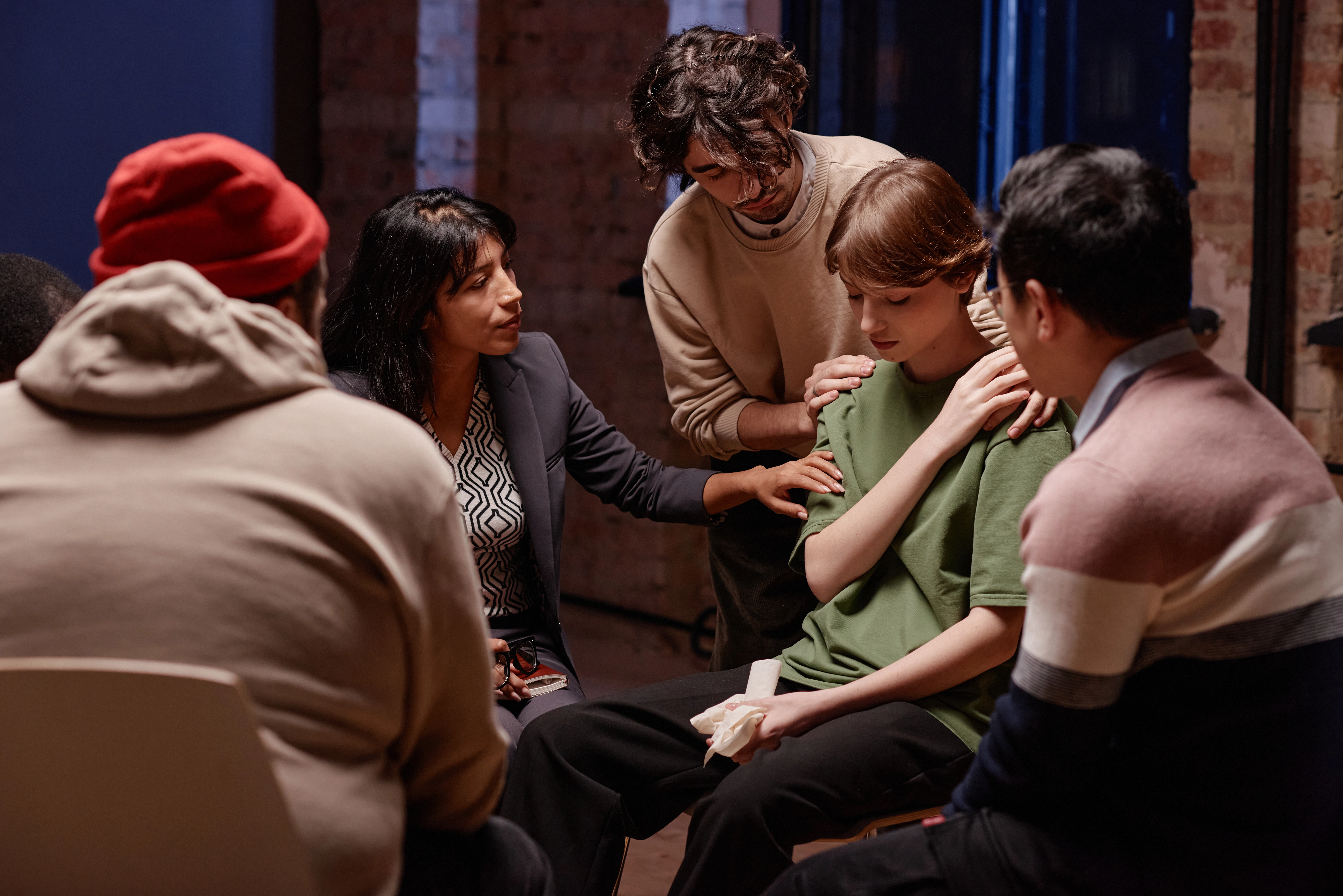What Is an Intervention for Addiction?
An intervention is a structured conversation where family, friends, or loved ones come together to encourage someone struggling with addiction to seek treatment. The goal is to help the person recognize the damage their substance use is causing and persuade them to accept professional help.
Interventions are typically planned ahead of time and can involve a professional interventionist who guides the process. These meetings can be emotional, but when done right, they have the power to change lives.
Do Addiction Interventions Work?
Yes, addiction interventions can work, but their success depends on several factors:
- The approach used – Interventions based on love and support are more effective than those filled with anger or blame.
- The willingness of the person struggling – Some people may agree to treatment immediately, while others might resist.
- Professional help – Having a trained interventionist increases the chances of success.
- Follow-through – Family members must stay firm and follow through with any consequences if their loved one refuses help.
Research shows that when done correctly, interventions often lead to treatment. According to the National Council on Alcoholism and Drug Dependence (NCADD), over 90% of people agree to get help after a professionally guided intervention.

Signs That Someone Needs an Intervention
Knowing when to step in is crucial. Here are some warning signs that indicate a person may need an intervention:
- Increased drug or alcohol use
- Lying or being secretive about substance use
- Declining physical or mental health
- Neglecting work, school, or responsibilities
- Financial problems due to substance use
- Legal issues such as DUI or arrests
- Isolation from friends and family
- Failed attempts to quit on their own
If your loved one shows any of these signs, an intervention may be necessary.
How to Plan an Effective Intervention
Planning is key to a successful intervention. Follow these steps to ensure the best possible outcome:
1. Gather a Support Team
Choose people who genuinely care about the individual, such as family members, close friends, or coworkers. Avoid including anyone who may be confrontational or judgmental.
2. Consult a Professional
Hiring an interventionist or talking to an addiction specialist can help you prepare and avoid common mistakes. A professional will also ensure the conversation stays productive.
3. Make a Clear Plan
Decide on the time, place, and structure of the meeting. Ensure it’s in a private, calm setting where everyone feels safe to speak openly.
4. Write Impact Statements
Each person should prepare a short, heartfelt letter explaining how addiction has affected them and why they want their loved one to get help. These statements should focus on personal feelings rather than accusations.
5. Set Boundaries and Consequences
Make it clear that if the person refuses help, there will be consequences. This might mean no longer offering financial support, cutting off contact, or setting firm boundaries.

6. Have a Treatment Plan Ready
Before the intervention, research treatment options. Have a rehab facility ready to admit them if they agree to go. Many addiction treatment centers, like Asheville Recovery Center, offer inpatient and outpatient programs for different levels of care.
7. Hold the Intervention
Stick to the plan, stay calm, and follow through with the prepared statements. If emotions get too heated, take a moment to pause, but don’t lose focus.
8. Follow Up After the Intervention
If the person agrees to treatment, help them get there immediately. If they refuse, follow through with the consequences discussed.
What If the Person Refuses Help?
Sometimes, despite your best efforts, the person struggling with addiction may refuse treatment. If this happens, don’t lose hope. Here’s what to do next:
- Stick to the boundaries set during the intervention.
- Continue offering love and support while refusing to enable their addiction.
- Encourage them to seek help when they’re ready.
- Consider a future intervention with professional assistance.
- Take care of your own mental health through support groups like Al-Anon or therapy.
Different Types of Addiction Interventions
There are several types of interventions, and choosing the right one depends on the situation:
1. Johnson Model
This is the most common type of intervention, where loved ones surprise the individual and encourage them to seek treatment.
2. Invitational Model
Instead of a surprise, the person struggling with addiction is invited to a meeting with their family to discuss the impact of their substance use.
3. Systemic Model
Rather than confronting the individual, this approach focuses on changing family dynamics and behaviors to encourage recovery.
4. Crisis Intervention
Used in emergency situations where immediate action is needed, such as overdose or dangerous behavior.
Finding Professional Help for an Intervention
If you’re considering an intervention, it’s best to seek professional guidance. Interventionists are trained to handle difficult situations and can improve the chances of success.
Many addiction treatment centers offer intervention services or can refer you to experienced professionals. Asheville Recovery Center, for example, provides support for families seeking help for their loved ones.
Why Immediate Action Matters
The longer someone struggles with addiction, the harder it becomes to seek help. Waiting too long can lead to severe health problems, legal trouble, or even overdose. If you’re thinking about holding an intervention, now is the time to act.
Final Thoughts
Interventions can be powerful tools for getting a loved one the help they need. While they don’t always work immediately, they often plant the seed for recovery. The key is preparation, support, and following through with treatment options.
If your loved one is struggling with addiction, don’t wait—take the first step today. Reach out to a professional interventionist or contact a rehab center like Asheville Recovery Center to explore treatment options. Recovery is possible, and your support can make all the difference.






